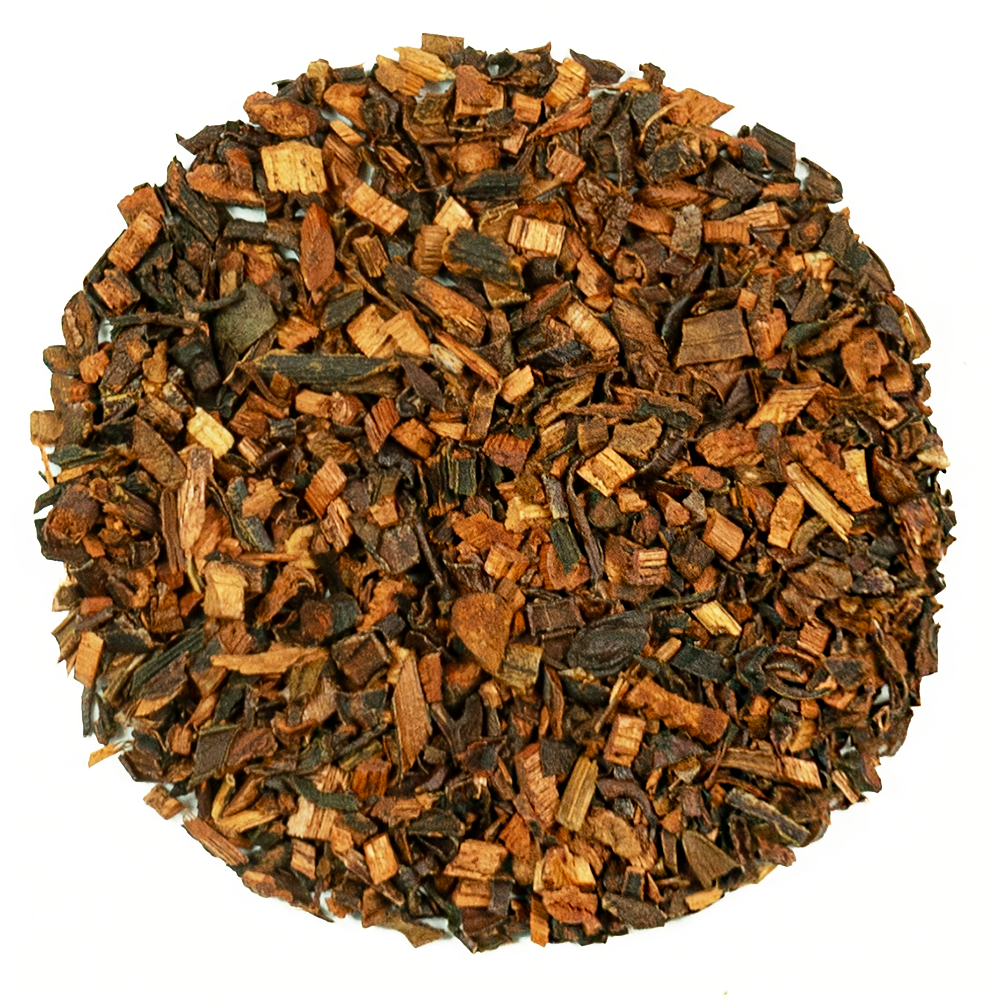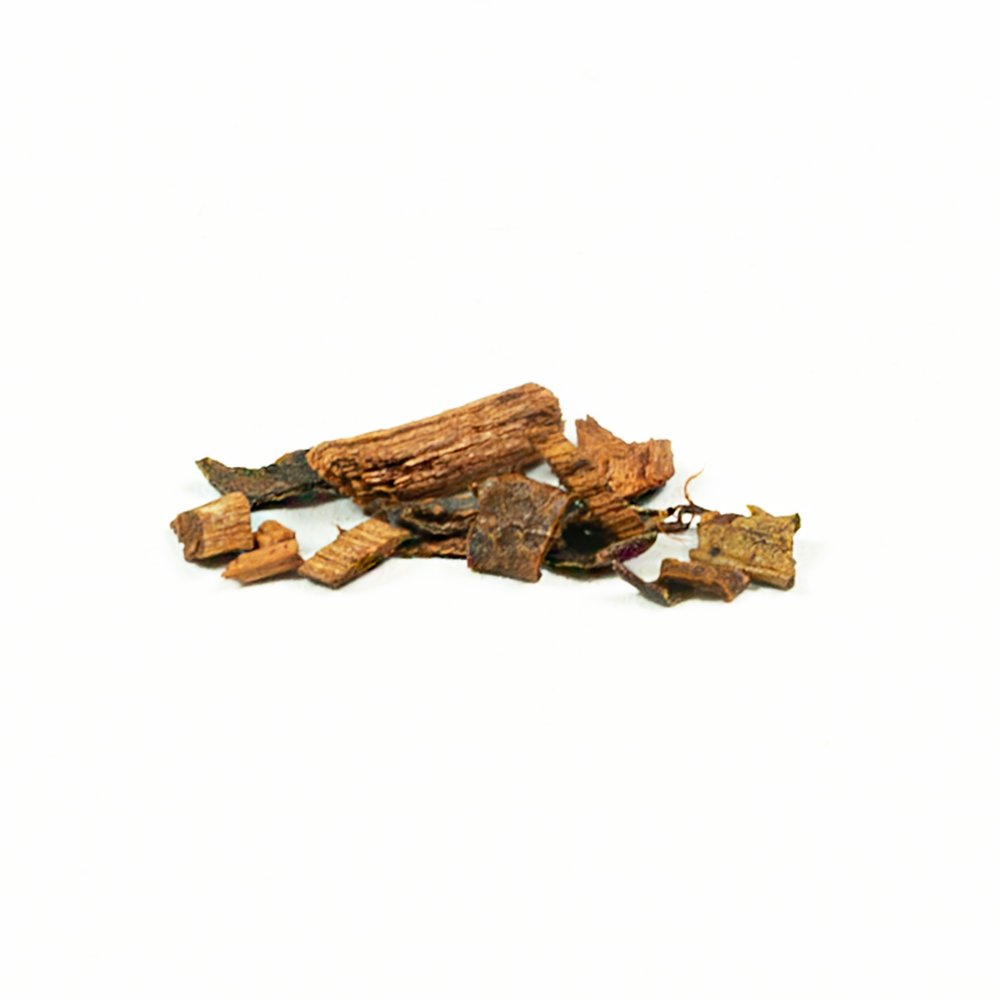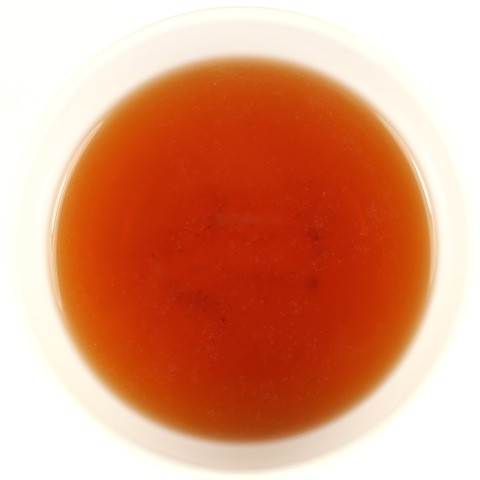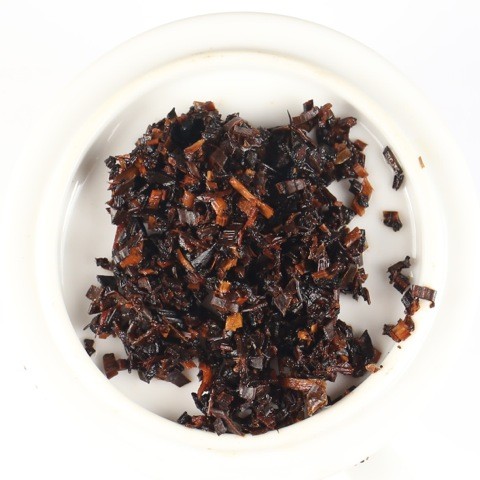Rooibos Tea Brewing Guide

1 Teaspoon
Add 1 teaspoon per person and one for the pot.

95⁰c - 100⁰c
Boil using fresh water, at a temperature of 95⁰ - 100⁰c.

5 - 7 Mins
Steep for 5-7 minutes, depending on personal preference.
About Product
-
Product Description
Honeybush Herbal Tea comes from the Eastern Cape province of South Africa. Its relatives include Rooibos Tea, which in turn grows in the Western Cape province. Despite being cousins, however, Honeybush Herbal Tea indeed has a unique character of its own making. As the name likely suggests, it boasts a subtle yet distinct herbaceous flavour with notes reminiscent of honey.
Honeybush Tea Botany
This Tea comes from the Cyclopia plant. Cyclopia is a member of the legume family, Fabaceae, which in turn is of the subfamily Faboideae. It grows trifoliolate leaves, single-flowered inflorescences and sweetly-scented, bright yellow flowers.
These flowers have prominent grooves on the standard petal, a thrust-in calyx base and two bracts fused at the base around the pedicel. When in bloom, the plant exudes a potent aroma similar to that of honey.
Honeybush Tea History
It’s likely that the indigenous peoples of South Africa first consumed Honeybush Tea for its health benefits. However, the earliest mention of it in botanical literature was in 1705. This coincided with the British and Dutch colonisation of southern Africa.
In 1814, the British government purchased the area now known as the Eastern Cape from the Dutch. During this period, the potential for a Honeybush Tea industry became a reality due to extensive research.
Why Should you Drink Honeybush Tea?
In a publication called “The King’s American Dispensatory, 1898”, Honeybush made it onto the list of recommended Tea substitutes. Today, this recommendation still holds true. This is because Honeybush Tea is a caffeine-free infusion. In turn, this makes it an excellent alternative to so-called ‘real’ Tea for caffeine-sensitive individuals or pregnant women.
Furthermore, it contains a wealth of antioxidants that can improve daily living in a multitude of ways. Most people, however, choose to drink Honeybush Tea because, put simply, it tastes great.
Useful Information
Type of Tea: Herbal Tea.
Origin: Eastern Cape Province, South Africa.
Brewing Instructions: Brew using freshly boiled water. Infuse for 5 to 10 minutes.
How to Serve: Unsurprisingly, the addition of honey is an excellent addition to Honeybush Tea. Alternatively, consider adding lemon for a unique bitter-sweet balance. Most, however, choose to enjoy this infusion without any accompaniments.
Tasting Notes: This Tea boasts sweet, herbaceous flavours with earthy undertones.
Colour in Cup: Coppery liquor, dark in tone.
Honeybush Tea Benefits
Honeybush, similar to Rooibos, is caffeine-free and low in tannins. It also contains a wealth of antioxidants including flavones, isoflavones, coumestans, luteolin, 4-hydroxycinnamic acid and polyphenols.
These components combined can combat free radicals in the body. This, in turn, can reduce the risks of developing several chronic conditions. Indeed, some studies suggest that this Tea could work as a preventative to cardiovascular disease and type-2 diabetes.
-
Delivery Information
We offer reliable delivery services through Royal Mail to ensure that your orders reach you on time.
Here are the main points you should be aware of:
- Standard UK Delivery: £3.95 excluding delivery charge.
- Delivery Times: Orders are processed and dispatched within 2-5 working days but they may take longer during busy times. It is worth noting that all our orders are packed by hand in order to maintain the quality.
- Free Delivery: We are delighted to provide free shipping for UK orders over £35*. Moreover, customers from Europe can enjoy free shipping for any purchase above €75*. Furthermore, we offer free delivery in the USA for all purchases exceeding $125*. Please note terms and conditions may apply.
- Tracking: When your package is sent you will receive a tracking number via email so as to keep tabs of its progress.
International Shipping
We do ship worldwide meaning our products can be accessed by anyone around the world.
Here are some important details:
- Delivery Times: International deliveries vary based on destination, generally taking between 7-14 working days.
- Shipping Costs: International shipping costs are calculated at checkout based on your location and weight of your order. View full delivery charges for your location.
- Customs and Import Duties: Remember customs or import duties may exist depending on regulations in your country; these charges are borne by the customer.
Returns Policy
Your satisfaction is our top priority, however if for any reasons you’re not completely happy with your purchase, simply follow our returns procedure:
- Eligibility: Items returned within 30 days of receipt must remain unopened and in their original condition.
- Process: In order to return an item contact our customer service department using your unique order number after which detailed instructions will be given concerning returning them back to us securely.
- Refunds: Our aim is to refund you within 5-7 working days upon successful reception of returned goods. The refund amount will be credited to your original payment method.
For any other Enquiries or help please contact our Customer Support Team always at your service.
-
Product Reviews

 Loose Leaf Tea
Loose Leaf Tea Pyramids
Pyramids Tea Bags
Tea Bags Africa
Africa Assam
Assam Ceylon
Ceylon Chinese
Chinese Darjeeling
Darjeeling European
European Indian
Indian Japan
Japan Nepal
Nepal South East Asia
South East Asia Ayurveda Tea
Ayurveda Tea Black Tea
Black Tea Chai Tea
Chai Tea Flowering Tea
Flowering Tea Fruit Tisanes
Fruit Tisanes Green Tea
Green Tea Herbal Tea
Herbal Tea Matcha Tea
Matcha Tea Oolong Tea
Oolong Tea Organic Tea
Organic Tea Pu erh Tea
Pu erh Tea Rooibos Tea
Rooibos Tea White Tea
White Tea Asian Coffee
Asian Coffee Caribbean Coffee
Caribbean Coffee Central American Coffee
Central American Coffee South American Coffee
South American Coffee Coffee Blends
Coffee Blends Decaffeinated Coffee
Decaffeinated Coffee Espresso Coffee
Espresso Coffee Ethically Sourced Coffee
Ethically Sourced Coffee Flavoured Coffee
Flavoured Coffee Organic Coffee
Organic Coffee Single Origin Coffee
Single Origin Coffee Chocolate 1
Chocolate 1 Chocolate 2
Chocolate 2 Chocolate 3
Chocolate 3 Chocolate 4
Chocolate 4 Chocolate 5
Chocolate 5 Chocolate 6
Chocolate 6 Chocolate 7
Chocolate 7 Chocolate 8
Chocolate 8 Chocolate 9
Chocolate 9 Loose Tea Filters
Loose Tea Filters Tea Accessories
Tea Accessories Tea Bricks
Tea Bricks Tea Caddies
Tea Caddies Tea Caddy Spoons
Tea Caddy Spoons Tea Gift Ideas
Tea Gift Ideas Tea Infusers
Tea Infusers Tea Strainers
Tea Strainers





